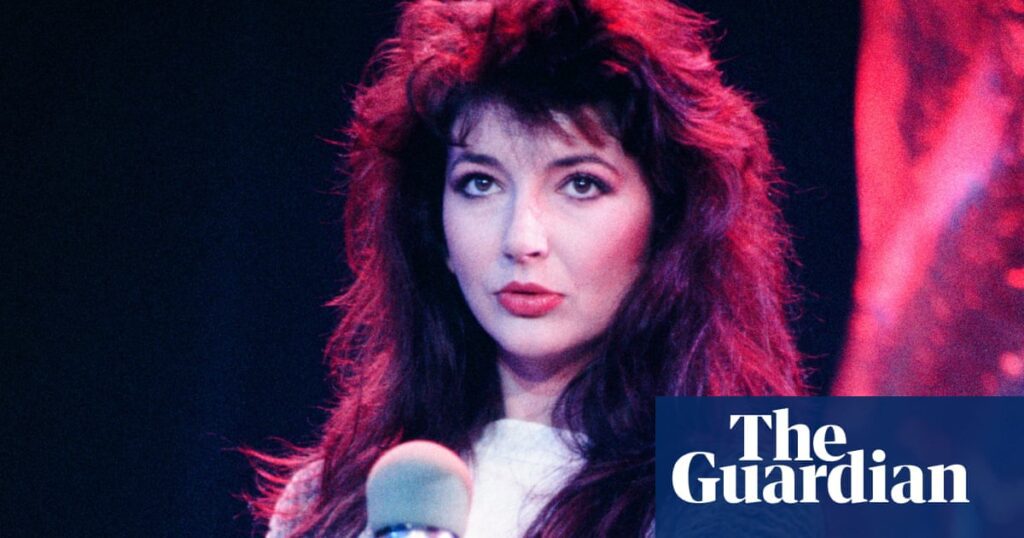Kate Bush and Fellow Creatives Rally Against AI Copyright Concerns
In a stirring call to action, iconic singer-songwriter Kate Bush has urged government officials to safeguard artists from the unlicensed use of their copyrighted works in the burgeoning world of AI. As concerns mount among high-profile creatives, Bush has joined notable figures such as actors Julianne Moore, Kevin Bacon, and Hugh Bonneville in signing a petition that bears the weight of over 36,000 supporting voices. This petition highlights the significant threat that generative AI poses to the livelihoods of artists, stating emphatically that such unauthorized usage cannot be permissible.
A Star-Studded Coalition
Bush’s involvement comes on the heels of Sir Paul McCartney’s recent advocacy for laws to combat the rampant copyright infringement by AI entities, warning that this technology has the potential to overshadow creative artists completely. After rising to fame with her groundbreaking song "Wuthering Heights" in 1978, Bush, who last released an album in 2011, expressed her eagerness to return to the music scene, stating to the BBC that she feels ready to create new work: “I’ve got lots of ideas … it’s been a long time.”
The Call for Change
Recent developments in the tech industry show an insatiable hunger for the vast amounts of content necessary to train AI algorithms. Peter Kyle, the secretary of state for science and technology, has promised a consultation concerning a system requiring copyright holders to opt-out of having their works utilized for AI training. He views AI as crucial for the growth of the UK’s economy, yet ministers have remained vague on the timeline for releasing such plans.
Conversely, Tech UK, a prominent industry lobby group, advocates for a “more open” marketplace allowing firms to utilize copyrighted data with proper remuneration systems in place. Their proposed opt-out approach would give AI companies the leeway to use data from those who haven’t expressly refused, but creators sound a more cautious alarm regarding the intricacies of this model.
The Artist Perspective
Artists like Thom Yorke from Radiohead and ABBA’s Björn Ulvaeus have also added their names to the petition, arguing passionately for fair compensation for creative contributions. Ulvaeus articulated a shared sentiment among artists, stating, “I don’t know if it’s too late but certainly we have to fight for the writers of … music so they can be remunerated in some form or other.”
Reflecting on the situation, Ed Newton-Rex, a former AI executive who left the industry due to ethical concerns, informed MPs about the escalating backlash against the pervasive intellectual property theft within the generative AI landscape. "Generative AI can be a powerful tool for creativity," he noted, "but unfortunately, many companies are exploiting the hard work of creators to train competitive models without compensation."
Government’s Position
UK culture secretary Lisa Nandy expressed reservations about the proposed opt-out system after examining similar initiatives in the U.S. and EU, stating that a simple opt-out could lead to creators being erased from the internet altogether. This has echoes of concerns voiced by publishers, who fear that disengaging from AI services like Google’s could render them invisible in digital searches, significantly harming their visibility and profitability.
Conclusion: The Fight for Fairness Continues
As the debate continues, artists and tech companies are at a crossroads. While generative AI presents promising potentialities for creativity, the necessity for a fair structural framework to protect the rights and livelihoods of creators could not be clearer. With a community rallying for their voices to be heard, it’s a critical moment for both the arts and the future of technology.
The AI Buzz Hub team is excited to see where these breakthroughs take us. Want to stay in the loop on all things AI? Subscribe to our newsletter or share this article with your fellow enthusiasts.




